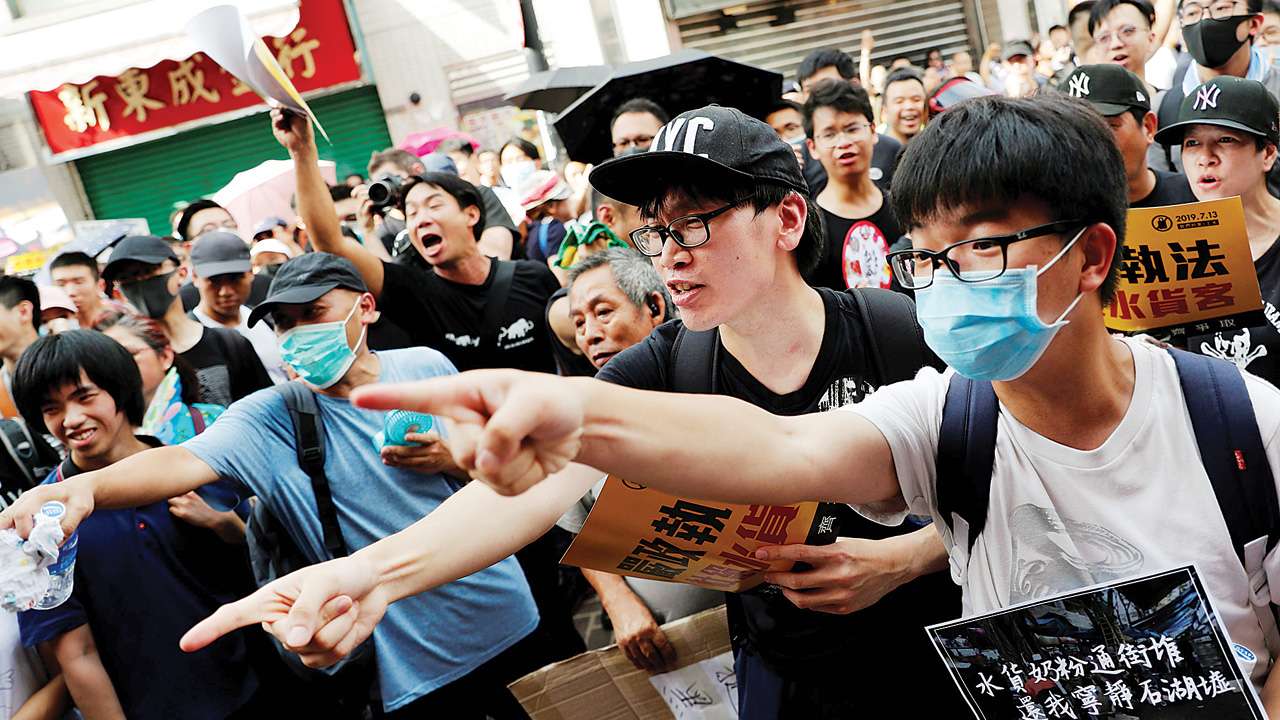
China has been rattled by three events. The first is the trade and technology dispute with the United States, which seems no nearer to resolution. The second is Washington’s decision to sell $2.20 billion (Rs 15,000 crore) worth of advanced military hardware to Taiwan that China regards as a part of the mainland. The third is the cascading series of violent protests in Hong Kong over China’s attempt to impose its authoritarian will on the thriving mercantile city that Britain handed back to China in 1997 under a 50-year agreement that guarantees its democratic freedoms.
Each of these events has the potential to erode China’s global credibility as it seeks to replace the United States as the world’s preeminent economic superpower.
The US overtook imperial Britain as the world’s largest economy in the 1890s. China’s 2019 GDP of $27.4 trillion by purchasing power parity (PPP) is already larger than America’s ($21.4 trillion). At current exchange rates too, the gap between the two countries is narrowing: China’s 2019 nominal GDP is $14.2 trillion against America’s $21.5 trillion. At their current respective rates of economic growth (roughly 6% and 3%), China’s nominal GDP could overtake US GDP in less than 20 years.
Apart from the three events that could slow China’s ascent – trade, Taiwan and Hong Kong – several other pressure points are building up. China rarely cares about international opinion, but the media exposé of the horrific treatment of over one million Chinese Muslims kept in prison-like detention camps in Xinjiang is creating global outrage.
The sale of military hardware, including battle tanks and anti-aircraft missiles, by the US to Taiwan after a self-imposed, decades-long embargo has meanwhile enraged Beijing. Last week, the Chinese government demanded that the sale be cancelled. But instead of paying heed to Beijing, the US further infuriated the Chinese by granting Taiwan’s anti-China President Tsai Ing-wen a two-day stopover in New York and Denver during her current visit to the Caribbean.
China has vowed to integrate Taiwan into the mainland, using military force if necessary. The sale of US military weaponry to Taipei is seen by Beijing as a deliberate aggravation.
Equally galling to Beijing are the protests in Hong Kong. When the former British colony was handed back to China in 1997, Hong Kong’s economy was nearly 20% of China’s. Today it is a mere 3%. But Hong Kong’s value to Beijing goes beyond the size of its economy. It is home to over one hundred global banks and has a vibrant stock market. In future, it could attract Chinese companies to list there rather than on the New York Stock Exchange, giving China access to an alternative source of global finance at its doorstep.
As The Economist observed: “Hong Kong is China’s conduit. It accounted for nearly 60% of direct investment both into and out of China in 2012-16. It has a mighty share of offshore yuan-denominated payments. Western firms put money and headquarters there because it is seen as part of the Western system. Its currency is tied to the American dollar. It ranks third in the world as a financial centre; its banking assets are worth a whopping 851% of GDP.”
So how might the anger on Hong Kong’s streets against China’s totalitarian regime play out? In its report, The Economist noted: “For many global firms, Hong Kong is both a gateway to the Chinese market and central to the Asian continent – more than 1,300 of them have their regional headquarters there. If Hong Kong came to be seen as just another Chinese city, Hong Kongers would not be the only ones to suffer. The threat is real. Since he took over as China’s leader in 2012, Mr Xi Jinping has been making it clearer than ever that the legal system should be under the party’s thumb. China must ‘absolutely not follow the Western road of judicial independence,’ he said in a speech published in February.
In 2015, Mr Xi launched a campaign to silence independent lawyers and civil-rights activists. Hundreds of them have been harassed or detained by the police. The authorities on the mainland have even sent thugs to other jurisdictions to abduct people, including a publisher of gossipy books about the party, snatched from a car park in Hong Kong and a tycoon taken from the Four Seasons hotel in 2017. The message is plain. Xi not only cares little for the rule of law on the Chinese mainland. He scorns it elsewhere, too.”
A paranoid China has warned the US against sending any “misleading signals” to “ultra-radicals” in Hong Kong. While Hong Kong’s China-friendly chief executive Carrie Lam has declared that the much-reviled extradition legislation is now “dead”, Hong Kongers believe it will at some stage be revived.
As a Special Administrative Region (SAR) of China till 2047, Hong Kong has less than a generation to come to terms with a transition from a free-wheeling capitalist city to being part of Communist China.
It is not a prospect anyone in Hong Kong relishes. For Beijing though, Hong Kong is part of a larger global affliction that includes uncertainty over Taiwan’s future, the international outrage over Xinjiang’s Muslims, and America’s relentless trade assault.
The writer is an author and publisher